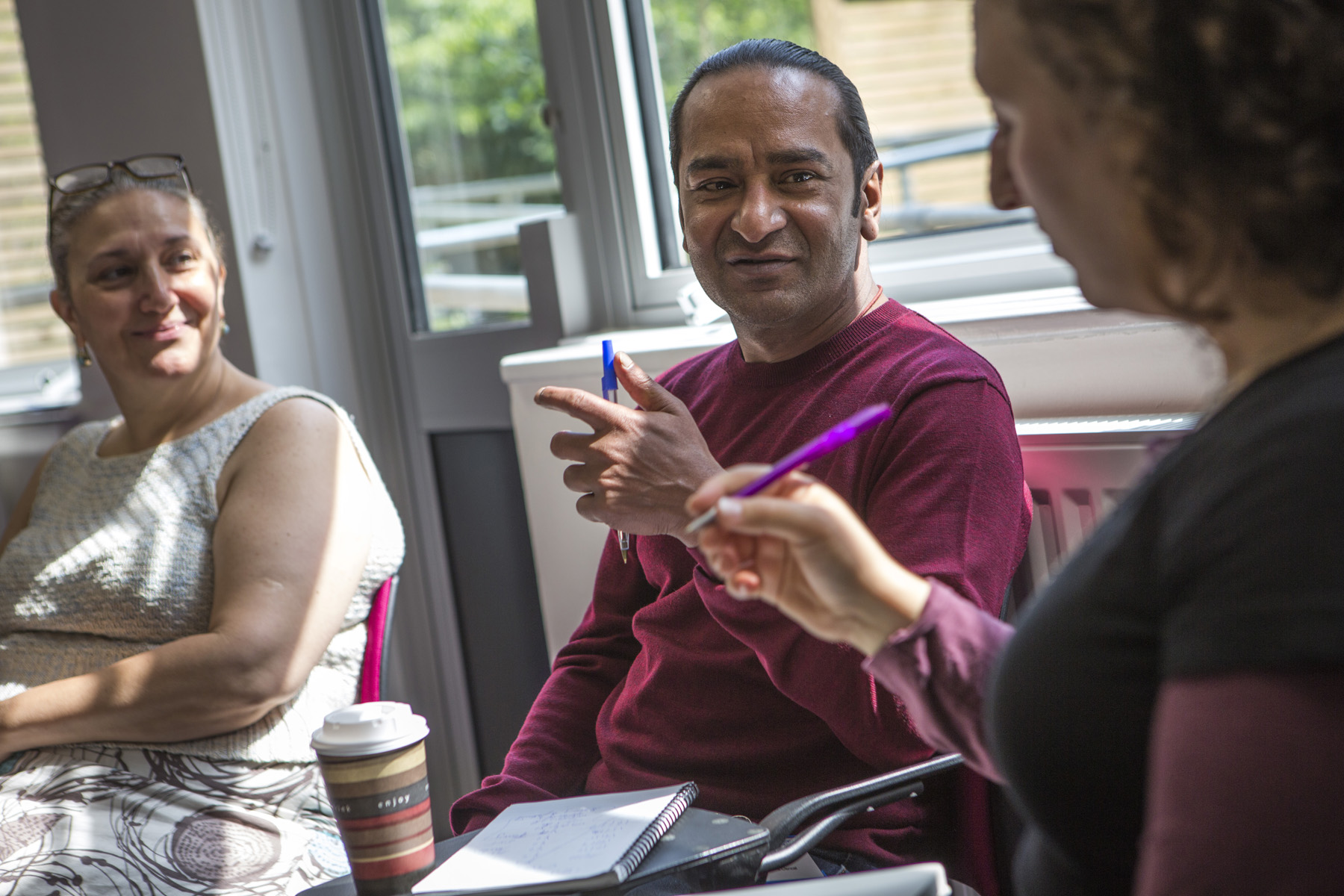
Student survey 2023: Summary
This summary presents key data from The Tavistock and Portman’s annual student survey for the academic year 2022/23, which ran from Monday 24 April 2023 to Sunday 9 July 2023.
Overview:
The 2023 annual student survey received a 39% response rate, up from 23% the previous year. Overall student satisfaction rose from 76% the year before to 81%, which benchmarks well against the wider sector. Satisfaction with learning and teaching remains high at 85%. Satisfaction increased across most areas of the student experience compared with the year before, except in Equality, Diversity and Inclusion (EDI) (73%) and Master’s Dissertations (64%), which both fell slightly.
Background:
The Tavistock and Portman NHS Foundation Trust has run an annual student survey in various forms since 2004. To enable benchmarking, the questions are largely based on the Postgraduate Taught Experience Survey (PTES) and the Postgraduate Research Experience Survey (PRES), both run nationally by Advance HE. This anonymous survey is a key component of the Trust’s engagement with students, alongside more frequent touchpoints, such as course committee and Dean’s Forum meetings.
Response rate:
The 2023 annual student survey received a 39% response rate, up from 23% in 2022. This compares positively with the 2023 PTES response rate, which represented approximately 12% of the total postgraduate population (n=83,807).
Student satisfaction:
Overall student satisfaction increased from 76% in 2022 to 81% in 2023. In the equivalent 2023 national surveys, AdvanceHE reported overall satisfaction rates of 83% in the PTES and 79% in the PRES – meaning that the Trust’s overall satisfaction is broadly comparable with these national benchmarks.
Key areas of good practice:

Learning and teaching
Satisfaction in this area was high at 85%, with 93% of students sharing that staff were enthusiastic about what they were teaching, and 96% of students agreeing that their course was intellectually stimulating.

Engagement
89% of students agreed that they were encouraged to ask questions and make contributions in taught sessions. Students also shared that they particularly valued the experiential learning opportunities on offer.

Equality, Diversity and Inclusion
81% of students felt that their course helped them to deepen their thinking and develop skills in working with diversity and with people who may have experienced prejudice, discrimination and oppression.

Employability
94% of students agreed that attending their course has improved their approach to their job, with 81% feeling that they were better prepared for their future career as a result of the course, in line with national benchmarks.
Key areas for improvement:

Student support & wellbeing
Satisfaction in this area was low at 64%. Students asked for more support from personal tutors, additional disability accommodations and more mental health support.

Course organisation
Satisfaction in this area was below benchmark at 61%, with issues around communication, contingency planning for staff absences, and progression criteria.

Financial accessibility
Some students reported facing financial strains, exacerbated by the cost-of-living crisis. There were requests for more affordable access to learning resources and financial assistance.

Master’s dissertations
Satisfaction in this area was at 67%, with students asking for clearer and more timely guidance to support them in undertaking dissertations.

Equality, Diversity and Inclusion
Satisfaction in this area fell slightly to 73%, while still exceeding sector benchmarks. Feedback indicates that some students feel unable to disclose disabilities or identities for fear of bias, and there were also requests for more diversity in staff and curricula.

Feedback culture
Some students reported feeling apprehensive around criticising the institution, and while it was broadly agreed that feedback opportunities exist, there were disparities in student perception as to whether that feedback would be valued and acted upon.
Actions and use of results:
The full results of the 2023 student survey have been analysed and presented via detailed reports, which will form the basis of action plans in key areas.
The feedback is also integrated into our annual course review – informing course-level action plans, which are discussed at course committees.
A number of steps are being taken to address some of the concerns raised by students in the 2023 student survey, including:
Student Support and Engagement
A new Student Support and Engagement team was established in 2023, with an additional role added in 2024 to support the Student Disability Officer in providing a high-quality experience for students with accessibility requirements and to help progress our ‘universal design’ goals.
Skills Fest
The Trust hosted its first ever Skills Fest in November 2023, providing students with opportunities to develop key academic skills, get career advice and network with students, staff and our wider community.
Training for Markers
The Tavistock and Portman is working with the University of Essex to develop training for markers who receive work with a ‘Specific Learning Difficulty/Difference’ (SPLD) cover sheet to enhance confidence, fairness and consistency of marking.
Pre-Arrival Survey
A new ‘pre-arrival’ survey is in the process of being developed; we hope it will launch for new postgraduate students in August 2024.
Student Experience Sub-Committee
A Student Experience Sub-Committee was established in 2024, whose role will be to progress the student survey action plan. An engagement strategy is being developed, and workstreams are being agreed to progress activity in key areas.
EDI and Feedback Culture
Equality, Diversity and Inclusion (EDI) and feedback culture will be a focus for new workstreams under this sub-committee. The student survey action plan includes items which address embedding disability into the curriculum, fostering a culture that values diverse voices and critical feedback, and looking at ways to improve the experience of students from diverse backgrounds.
Professional Services
Investment is being made in professional services staff and in course administration in particular – providing further support for faculty and students.